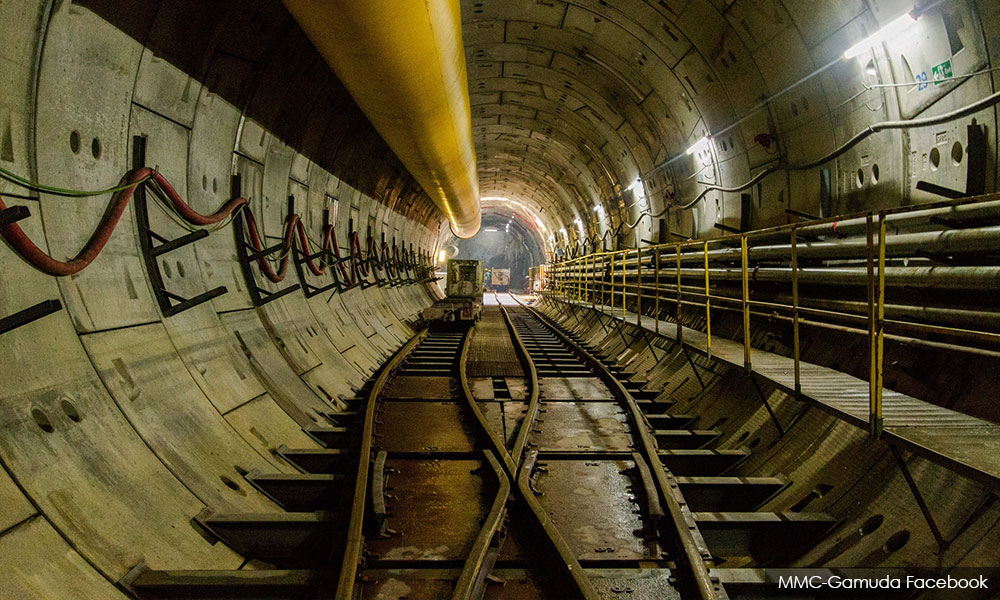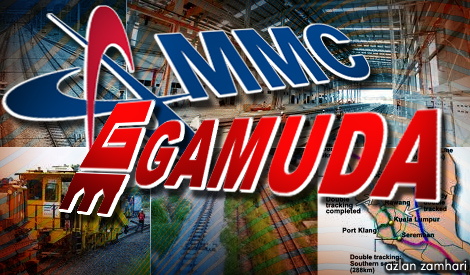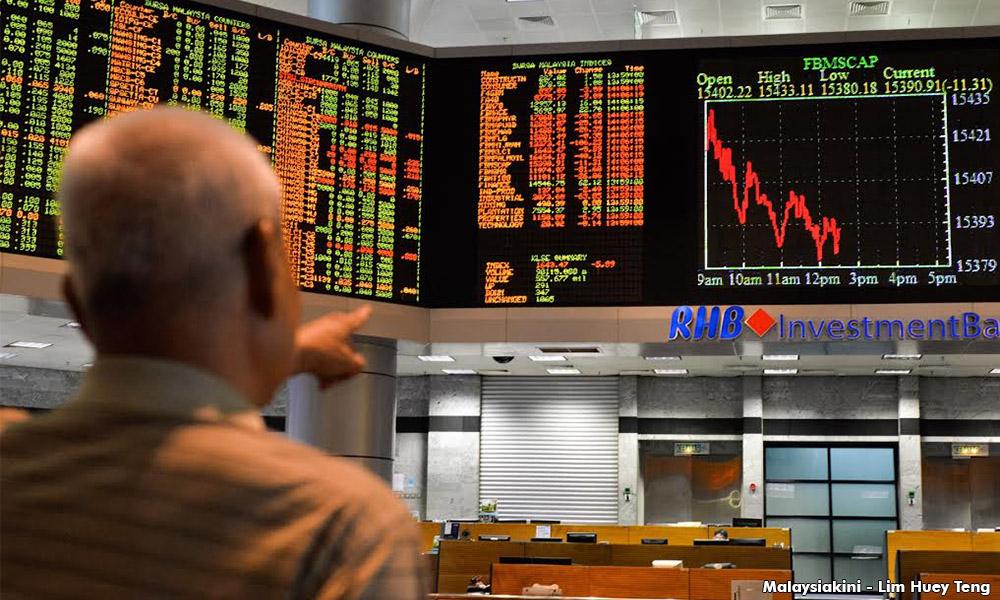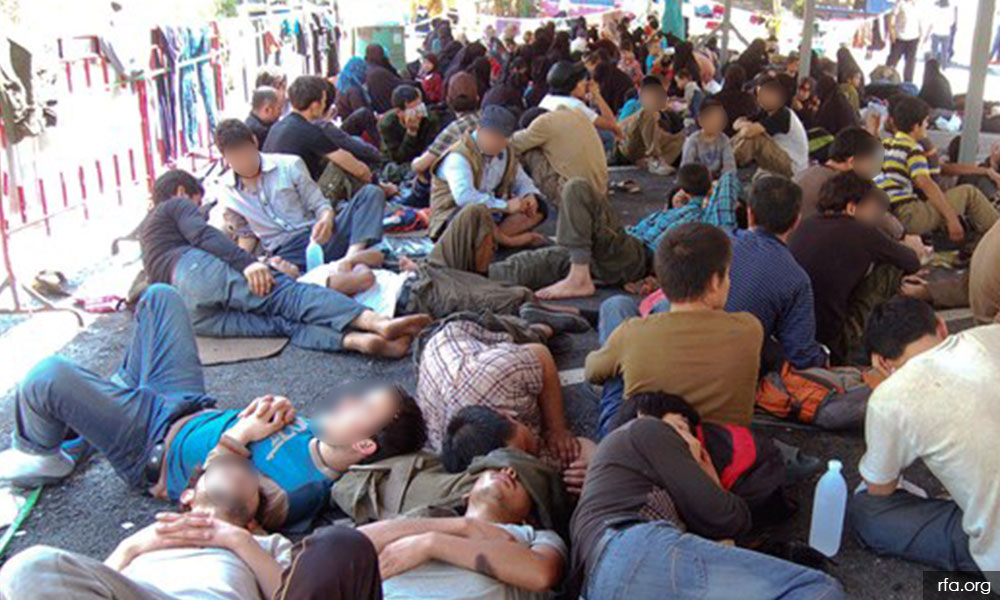
Published by Malaysiakini, images from Malaysiakini.
Whether MMC-Gamuda knows it or not, it has taken on the Finance Ministry head-on by refusing to further reduce the cost of its MRT2 underground construction.
The word “head on” implies what Tony Pua had suggested in his open letter, which is the refusal to reduce cost; the suggestion that the Finance Ministry had made its decision in an arbitrary manner; and the unwillingness to share the (costing and other) data of its underground (tunnelling) projects; and subsequently subject itself to the recommendations of an independent engineering firm.
The maximalist approach of MMC Gamuda is dangerous in five ways, even if they have – for now – persuaded Prime Minister Dr Mahathir Mohamad to reconsider the decision.
First, Mahathir and the cabinet are both hell-bent on reducing the national debt of Malaysia; ideally from more than 82 percent of the gross domestic product (GDP) to around 37-35 percent. The latter is not cast in stone, as yet, but it was the gold standard set by Mahathir when he retired from his first stint as prime minister in October 2003.
The year 2003 marked the high-water point of a smooth transition, which allowed Abdullah Ahmad Badawi and subsequently, Najib Abdul Razak, to remain in office between 2004 and 2018 with relative ease, despite the huge financial cost to the Malaysian government.
So, it goes without saying that for the Mahathir-Anwar Ibrahim transition (which is a matter of national interest) to take place, the prime minister and his cabinet have to “scrimp and save”.
MMC-Gamuda appears oblivious to the issue of national debt, which affects the livelihood of more than 32 million people, with several generations to come, when its directors and employees appeared to focus on the possibility of supposedly “20,000 job losses” of their workers, even though the above-ground projects have not been cancelled.
Secondly, MMC-Gamuda seems oddly out of character.
The company is a 50-50 joint venture between Syed Mokhtar Albukhary’s MMC and Gamuda, which was founded by Koon Yew Yin in the mid-1970s. Both founders have been generous philanthropists to this day,
These two Tan Sris have also made it to the top of the food chain in Malaysia, both before and after their forays into engineering projects, due to their willingness to listen to the Malaysian government where a smart partnership is concerned.
The Smart Tunnel in Kuala Lumpur, for example, which is a road that can double up as a flood mitigation facility where excess water can be channelled away from the over-paved environment of Kuala Lumpur, was mooted during Mahathir’s first tenure.
If Gamuda was successful in getting both portions of the MRT2 project, both above the ground and in the tunnel since, it must have been due to its delivery of the Smart Tunnel, which was a Malaysian success as documented by the National Geographic Channel.
It is mind boggling why MMC-Gamuda directors, whose composition is not clear to the public as yet, would not want to emulate the founding principles and spirits of the two Tan Sris.
Giving in to further deductions of the MRT2 project is not an all-around collapse when such goodwill would often be taken in a kind manner, especially when the government is neck deep in national debt.
Have the directors of MMC-Gamuda become the proverbial tail to wag the dog?

In other words, have they gone against the best practices of the current and past owners? If so, the board of MMC-Gamuda has gone “quasi-rouge”, one would assume.
If it is the latter, it is not a wise approach as neither Mahathir nor Anwar are the kind to want to spite the nose to humiliate a long time private-public partnership (PPP) entity.
Thirdly, if MMC-Gamuda cannot provide a further deduction of 23 percent, when the cost overrun has hit RM56 billion, despite an original tender of some RM 23 billion, then the math does not appear to be square.
The company has either lost its efficiency, causing the cost to balloon, or, its engineering division has lost its prowess since the completion of the smart tunnel.
Fourthly, MMC-Gamuda appears to have the tunnel boring technology, which the Malaysian government appreciates and approves of, so why not focus on taking a wise and moderate retreat instead of an all-out head-butt with the Finance Ministry?
After all, the geology and geography of Peninsular Malaysia, where Banjaran Titiwangsa separates the East Coast from the West Coast, offers plenty of prospects for MMC-Gamuda to work with the government, rather than against it.
If MMC-Gamuda can think in such broad terms, even the hilly and tough terrain of Sabah and Sarawak, are the future oysters of their growth targets and infrastructure projects, as and when there are new international tenders.
Finally, MMC-Gamuda is a public listed company. As and when it launches into any social media campaign, such as urging the workers to sign the online petition, the directors of MMC Gamuda are skipping three processes:
- They did not call for an “extraordinary general meeting” of all shareholders;
- They did not explain to the shareholders why MMC Gamuda did not share the data with the independent engineering consulting firm; and
- They did not take into consideration the option of adapting to the new economy, such as Grab did to become the feeder system to enhance mobility and ridership.
In other words, all “marriages” can fall apart, but most don’t, especially if they know how to navigate through the hard rocks of tough decisions. In extraordinary times, there is a need for extraordinary courage, not just solutions.
Walking back is not a concession, just as Mahathir has on more than one occasion been willing to do, such as relinquishing his interest to helm the portfolio of the Education Ministry and (momentarily) suspending the accession to the Comprehensive Trans-Pacific Partnership Agreement (CPTPP).
Public listed companies with a strong record of doing well in the past do not have to get all high-strung and use social media to run rings around the Finance Ministry. This is especially when the coming 2019 Budget, set to be delivered in Parliament on Nov 6, is the first budget of Pakatan Harapan to “save Malaysia”.
More importantly, MMC-Gamuda cannot fail to take notice that Najib has joined its media campaign too. By backing it not to back down.
If this is not guilt by association (with a former prime minister slapped with 35 charges of criminal breach of trust within five months since he relinquished office), then MMC-Gamuda’s corporate communication has failed to anticipate the danger of being used by Najib and Umno to make its come back.
More so at a time when all Malaysians, including MMC-Gamuda’s “20,000 employees” do understand the risks of kleptocracy, since many have vouched to work hard to make a better Malaysia based on their comments in social media.
The solution(s)? Use arbitration and corporate diplomacy, invariably, wisdom to achieve a win-win solution with the Prime Minister’s Office, the Finance Ministry and the cabinet, indeed the people of Malaysia. Cut costs. Don’t cut ties in any administration that is strong on Private-Public Partnership (PPP) and smart partnership.
Dr. Rais Hussin is President & CEO of EMIR Research, an independent think tank focused on strategic policy recommendations based on rigorous research.

